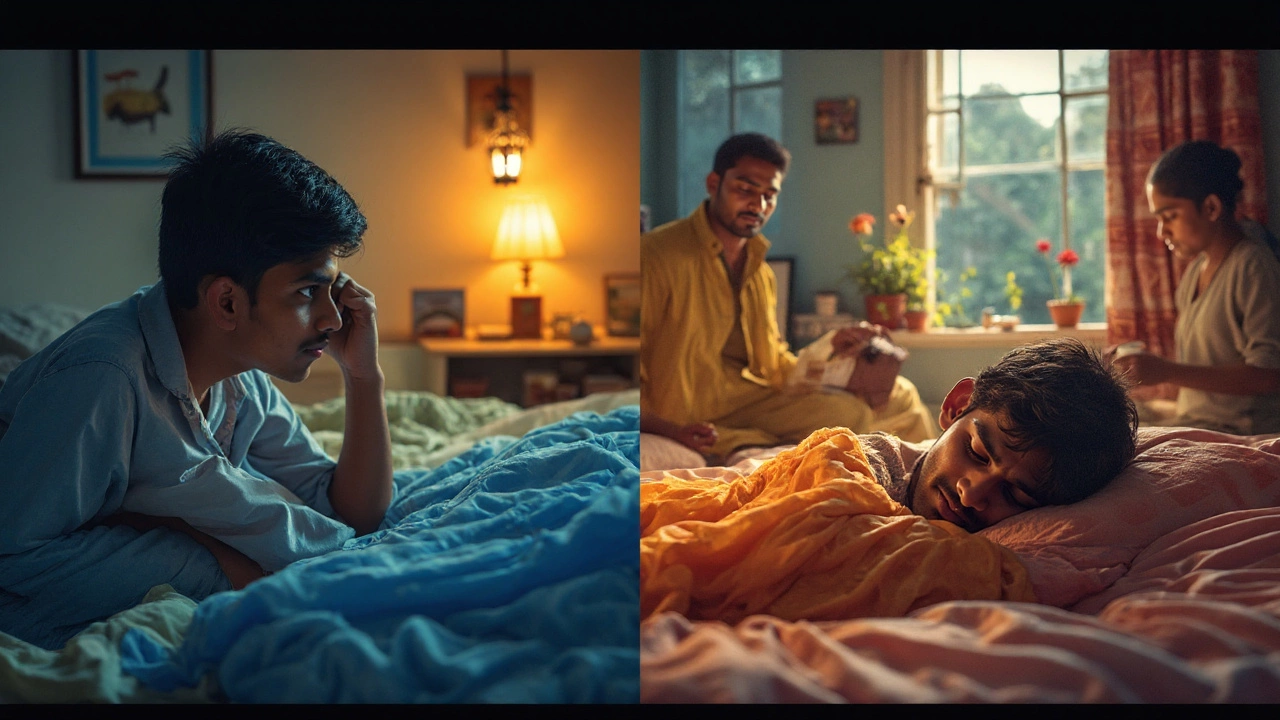How Many Hours of Sleep Do JEE Aspirants Really Get? Sleep Habits, Tips & Stats

Picture this: it’s 1 a.m., the lamp is flickering, and a battered physics book is spread open. If you’ve ever wondered how much sleep a JEE aspirant really gets, you’re not alone. Stories about late-night marathons and all-nighters are everywhere, but the truth might surprise you. Sleep can seem like a luxury when those exam dates are lurking. But who’s getting by on just four hours, and who’s actually clocking in a healthy amount? The answer isn’t so straightforward, and a lot depends on how each student balances priorities, stress, and strategies. Let’s unravel what’s really happening between those long study sessions and the few snatched hours of rest.
The Sleep Reality: What Does the Data Say?
If you ask five JEE aspirants how many hours they sleep, you’ll probably get five wildly different answers. Some will say they survive on barely five hours a night, while others won’t sacrifice their precious sleep for anything. What do the studies show? According to a 2023 survey by Allen Career Institute that tracked over 6,000 JEE students in India, the average sleep per night hovered between 5.5 and 6.5 hours during peak preparation months. That’s less than the 8 hours recommended for teenagers by sleep experts, but not exactly the zombie territory you might expect.
A lot depends on the month you ask. Students entering the final 3 months before the exam tend to shave off more sleep, sometimes slipping to 5 hours or lower. On the flip side, students who sleep more than 7 hours typically show better retention rates, mood, and resilience. It’s not just about the number of hours, either. Interrupted sleep thanks to late-night cramming, stress, or anxiety also bangs up the quality of rest. And if you think sleep is just a suggestion, get this: a research paper published in Nature Reviews Neuroscience (2019) pointed out that pulling frequent all-nighters or cutting sleep short before big tests tanks your cognitive performance even worse than moderate alcohol intoxication. Not great news for anyone who thought late nights are a badge of honor.
The environment also plays a role. Students living in coaching hubs like Kota or Hyderabad, where peer pressure and heavy coaching schedules rule, tend to report the most sleep deprivation. In contrast, those studying at home and following self-paced schedules seem to manage an extra half hour to an hour of sleep on average. Let’s get a snapshot of what the actual numbers look like:
| Group | Average Sleep (Hours) | Common Sleep Routine |
|---|---|---|
| Coaching Hostel Students | 5.1 | Sleep late, wake up early, frequent late-night study |
| Home-Based Self-Study | 6.2 | Early to bed, more flexible morning hours |
| Top 500 JEE Ranks (2024) | 6.8 | Stick to strict sleep schedules, mindful rest |
| Below 1 Lakh Rank | 5.4 | Erratic sleep, frequent all-nighters |
These numbers paint a stark reality. While late nights are common, the top rankers aren’t always the ones burning the midnight oil. In fact, they often prioritize sleep as carefully as their study plan.
Why Sleep is a Game-Changer for JEE Performance
Here’s something wild: sleeping more can actually make your study hours more valuable. A well-rested brain processes and stores new information better. Memory consolidation, that science-y process that cements learning, mainly happens while you sleep. If you skip on rest, you’re basically hitting ‘save’ on your hard drive with half a battery.
Ever experienced that foggy feeling the morning after a late study session? That’s not just in your head. Studies, including one by Stanford Medicine (2021), show that even one night of poor sleep can slice focus and cognitive speed by up to 25%. Cramming till sunrise doesn’t just burn you out, it locks in more mistakes. You’re more likely to misread questions or make silly calculation slips—something you can’t afford in JEE, where every mark counts.
So, why do so many still sacrifice sleep? The pressure is real. With friends studying long hours and coaching centers piling on assignments, FOMO is almost guaranteed. Some students fall into the trap of comparing themselves with others who brag about their 16-hour study schedules. But what’s often left out is how many of those hours are spent sleepy, unfocused, or rereading the same paragraph three times.
Getting enough sleep also keeps emotions in check. JEE prep is a marathon, not a sprint, and stressful nights stacked on top of each other can leave you feeling defeated, anxious, or worse—ready to quit. The students who do well long-term are usually the ones who build recharge time into their strategy.

How Top Scorers Manage Their Sleep
What separates a typical aspirant from a top scorer? It’s less about heroic hours and more about consistency and rhythm. Interviews with JEE 2024 toppers reveal an interesting trend—they’re protective about their sleep, sometimes more than their mock test routine. Pulling an all-nighter before a test? Almost unheard of in the top 1000 ranks.
For example, Sarthak Mehta, who scored AIR 37 in 2024, set a non-negotiable rule—minimum 6.5 hours, no matter what. This wasn’t a random decision. He noticed sharper problem-solving and better test scores after weeks when he slept more. Another topper, Sneha Kulkarni, kept a strict bedtime at 11 p.m., waking up at 6 a.m. for fresh revision. Her point? "Morning revision sticks better and avoids late-night anxiety."
What about naps? Almost all high-performing students reported using short 20-30 minute power naps to recharge during afternoon slumps instead of endless coffee refills. This nap habit helps break up long study blocks and keeps the mind alert for the crucial evening mock tests that many coaching centers recommend.
One trick that keeps coming up in topper interviews: preparation planners. Using a planner or calendar helps aspirants block off time for study, sleep, and breaks, making it harder to let revision eat into sleep hours. Over time, this routine becomes second nature, so by the time the actual JEE date rolls around, sleep patterns stay steady despite stress.
What Happens When Sleep is Ignored? The Risks and Red Flags
Missed sleep isn’t just about droopy eyes or morning grogginess. Chronic sleep deprivation starts to show up in ways you might not expect. Short-term, you might get away with a few late-night binges, but over weeks or months, the cracks widen. The Indian Journal of Psychiatry (2022) noted a 40% increase in reported anxiety, depressive moods, and irritability among students logging fewer than 6 hours per night leading up to major entrance exams.
Sleep-deprived students often report trouble focusing, mood swings, impulsive mistakes, and issues with memory recall. Think about it: you study calculus for four hours, but can barely remember the formulas the next day. That’s your brain struggling with RAM overload and no downtime to clear the cache.
Over time, poor sleep can affect your immune system. Several JEE aspirants mention falling sick more often toward the end of their prep, usually coinciding with those sleep-starved weeks. Illness is a curveball no one wants days before exam day. Skimping on sleep also makes you more vulnerable to those panic spiral moments—a common story just before big tests.
The 2024 NTA (National Testing Agency) analysis even found a mild correlation between students who declared 6+ hours of sleep and higher average marks in JEE Mains. A bonus many forget: proper sleep the night before the exam can sometimes boost scores more than a late-night revision binge.

How to Build a Smarter Sleep Routine for JEE Prep
Getting good sleep with a heavy prep schedule isn’t about wishful thinking. You can make simple changes that boost your nightly rest without killing your revision hours. Here’s what works, based on both research and real-life JEE toppers:
- Stick to a set sleep window: Choose a fixed time to wind down, even on weekends. Consistency is harder than just clocking a certain number of hours but pays off.
- Limit device use an hour before bed: The blue light from screens tells your brain it’s still daytime. Switch to offline revision (handwritten notes or books) in that post-dinner block.
- Try short, regular naps: A quick 20-minute power nap in the afternoon can do wonders for retention and energy, especially after lunch.
- Use planners to set boundaries: Mark your sleep hours right along with your study blocks. Visual planning helps avoid letting last-minute revision creep into bedtime.
- Factor in your personal sleep style: Some students do better with early bedtimes and morning study sessions, others with a slightly later schedule. Find what keeps you sharp, not what works for someone else.
- Eat light at night: Heavy or spicy meals delay sleep and make you sluggish the next morning. Keep snacks simple—bananas, yogurt, a light sandwich.
- Watch caffeine timing: Coffee or tea is fine in the morning. Post 6 p.m., it’ll just keep you staring at the ceiling later.
- Wind-down rituals: Deep breathing, light stretching, and reading fiction are underrated sleep aids if stress is keeping you restless at night.
If you’re prepping for JEE, don’t treat sleep like a luxury. Make it a core part of your study arsenal—just as essential as your NCERT books or test series. If you optimize rest, you might find you need fewer total study hours to get more done and feel a lot better while doing it.
Write a comment